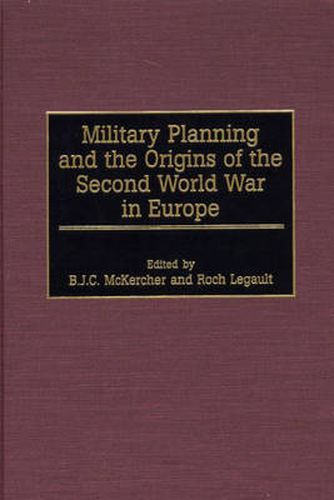Readings Newsletter
Become a Readings Member to make your shopping experience even easier.
Sign in or sign up for free!
You’re not far away from qualifying for FREE standard shipping within Australia
You’ve qualified for FREE standard shipping within Australia
The cart is loading…






This study offers a new perspective on the origins of the Second World War by comparing and contrasting military planning in seven nations in the two decades before 1939 (and, in the case of the United States and Soviet Russia, before 1941). Developing themes over time and across military cultures allows the authors to provide a comparative framework in which to survey how military planning and foreign policy were interwoven and how these connections produced divergent national strategies in the context of differing nationalities, military organizations and societies. The contributors to this volume have consciously employed a wide interpretation of military history by emphasizing the interplay of social, political, diplomatic and economic factors with military concerns, as well as the relationship between war and society. For example, the German army developed its concept of blitzkrieg by examining military theory generated within the General Staff before 1918, and by considering the new political circumstances in which the Weimar state and its Nazi successor found themselves as a result of the Versailles Treaty. Despite its ultimate success, the German concept was merely abstract and theoretical until the combined use of armour and air power was employed effectively in Poland in the autumn of 1939 and in Western Europe during the spring of 1940. In contrast, the French defensive strategy built around the use of the Maginot Line was illustrative of a mainly defensive foreign policy, while British appeasement policy reflected the diminished level of military preparedness that was possible throughout the 1930s.
$9.00 standard shipping within Australia
FREE standard shipping within Australia for orders over $100.00
Express & International shipping calculated at checkout
This study offers a new perspective on the origins of the Second World War by comparing and contrasting military planning in seven nations in the two decades before 1939 (and, in the case of the United States and Soviet Russia, before 1941). Developing themes over time and across military cultures allows the authors to provide a comparative framework in which to survey how military planning and foreign policy were interwoven and how these connections produced divergent national strategies in the context of differing nationalities, military organizations and societies. The contributors to this volume have consciously employed a wide interpretation of military history by emphasizing the interplay of social, political, diplomatic and economic factors with military concerns, as well as the relationship between war and society. For example, the German army developed its concept of blitzkrieg by examining military theory generated within the General Staff before 1918, and by considering the new political circumstances in which the Weimar state and its Nazi successor found themselves as a result of the Versailles Treaty. Despite its ultimate success, the German concept was merely abstract and theoretical until the combined use of armour and air power was employed effectively in Poland in the autumn of 1939 and in Western Europe during the spring of 1940. In contrast, the French defensive strategy built around the use of the Maginot Line was illustrative of a mainly defensive foreign policy, while British appeasement policy reflected the diminished level of military preparedness that was possible throughout the 1930s.